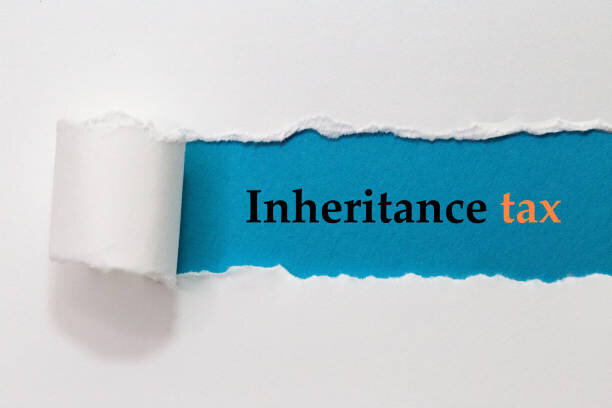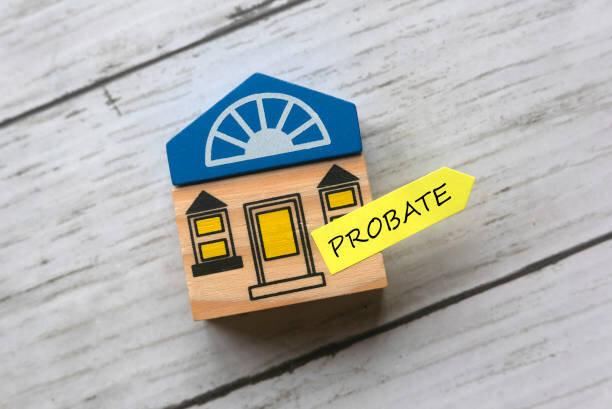
Pricing your inherited home in Philadelphia for sale. If you’re here, it’s likely that you’ve recently inherited a house in Philadelphia or are in the process of planning for such an event. At this moment, your mind is likely swirling with questions, uncertainties, and a desire to make the most informed decision regarding the sale of your inherited property. You want to navigate this process smoothly and ensure that you’re making a choice that aligns with your best interests. Inheriting a home can be a significant life event, often accompanied by various challenges and uncertainties. Whether you’ve recently inherited a house or are in the process of planning for such an event, understanding the intricacies of pricing your inherited home in Philadelphia for sale is essential. In this comprehensive guide, we will address all your concerns and provide you with the knowledge needed to make informed decisions.
Here are the key points of information, knowledge, and concerns that you’re seeking answers to:
 How do you determine the fair market value of an inherited house?
How do you determine the fair market value of an inherited house?
 What factors influence the cost basis for selling an inherited house?
What factors influence the cost basis for selling an inherited house?
 Are there inheritance tax implications when selling a house in Pennsylvania?
Are there inheritance tax implications when selling a house in Pennsylvania?
 Do all heirs have to agree when it comes to selling inherited property in PA?
Do all heirs have to agree when it comes to selling inherited property in PA?
 What are the tax implications, including capital gains taxes?
What are the tax implications, including capital gains taxes?

 Should you explore selling the property or renting it out?
Should you explore selling the property or renting it out?
 What are the pros and cons of selling an inherited house?
What are the pros and cons of selling an inherited house?
 What steps can you take to prepare your inherited house for a smooth sale?
What steps can you take to prepare your inherited house for a smooth sale?
 How can you attract potential buyers?
How can you attract potential buyers?
 What professional guidance and advice do you need?
What professional guidance and advice do you need?
 What are the potential pitfalls, including legal considerations and outstanding debts?
What are the potential pitfalls, including legal considerations and outstanding debts?
Now, with a clear understanding of your state of mind and the information you seek, let’s explore the process of pricing your inherited home in Philadelphia for sale and address all these concerns.
Determining the Fair Market Value of Your Inherited Home
Establishing a fair market value is a critical initial step when selling an inherited property. To do this effectively, consult professionals like appraisers and local real estate experts. They bring valuable insights by considering factors such as historical market trends, property attributes, location, and recent comparable sales. Prioritize professionals with strong research, local expertise, references, and transparent communication. By leveraging their expertise and following these guidelines, you’ll make well-informed decisions regarding your inherited property’s fair market value.
Understanding the Cost Basis for Selling an Inherited House

The cost basis of your inherited house plays a significant role in calculating capital gains taxes. To calculate the cost basis, you generally start with the property’s value on the date of the previous owner’s death. Understanding this factor is crucial as it directly affects your potential tax liability when selling the property. Our blog on Tax Consequences When Selling a House I Inherited in Philadelphia delves deeper into the tax implications and can provide you with valuable insights.
Exploring Inheritance Tax Implications in Pennsylvania
Pennsylvania has specific inheritance tax regulations, and understanding them is essential when planning to sell an inherited house. The inheritance tax rates and rules may significantly influence your decisions and the final sale price.
Navigating the Agreement of All Heirs
Selling an inherited property with multiple heirs can be a complex and complicated process indeed. Ensuring everyone is on the same page is crucial. Here are some important considerations:
 Legal Requirements: Understanding local laws is the first step. Some regions require unanimous heir consent for a sale, while others may accept a majority decision. Seek legal advice to know the specific legal requirements in your area.
Legal Requirements: Understanding local laws is the first step. Some regions require unanimous heir consent for a sale, while others may accept a majority decision. Seek legal advice to know the specific legal requirements in your area.
 Open Communication: Encourage open and transparent discussions among heirs. Address concerns, goals, and expectations. Effective communication can help prevent conflicts down the road.
Open Communication: Encourage open and transparent discussions among heirs. Address concerns, goals, and expectations. Effective communication can help prevent conflicts down the road.
 Mediation and Legal Assistance: If reaching a consensus proves challenging, consider mediation services or consult with an attorney experienced in both inheritance taxes and property sales. They can provide guidance on legal matters and dispute resolution.
Mediation and Legal Assistance: If reaching a consensus proves challenging, consider mediation services or consult with an attorney experienced in both inheritance taxes and property sales. They can provide guidance on legal matters and dispute resolution.

 Buyout Options: Explore buyout arrangements for heirs who wish to sell their shares to those who want to retain the property. This can be a fair solution when there are multiple people with differing preferences.
Buyout Options: Explore buyout arrangements for heirs who wish to sell their shares to those who want to retain the property. This can be a fair solution when there are multiple people with differing preferences.
 Timeline and Goals: Set clear timelines for decision-making and the sales process. Define the objectives of the sale. Are the heirs looking for a quick sale, or are they willing to wait for the right offer?
Timeline and Goals: Set clear timelines for decision-making and the sales process. Define the objectives of the sale. Are the heirs looking for a quick sale, or are they willing to wait for the right offer?
 Fair Distribution: Determine a fair method for distributing the sale proceeds among the deceased person’s heirs. Consider factors such as each heir’s share and contributions to expenses.
Fair Distribution: Determine a fair method for distributing the sale proceeds among the deceased person’s heirs. Consider factors such as each heir’s share and contributions to expenses.
 Documentation: Protect all parties involved by documenting the terms of the sale and the responsibilities of each of the deceased person’s heirs. Legal agreements can help prevent disputes and ensure everyone’s interests are safeguarded.
Documentation: Protect all parties involved by documenting the terms of the sale and the responsibilities of each of the deceased person’s heirs. Legal agreements can help prevent disputes and ensure everyone’s interests are safeguarded.
 Professional Guidance: Seek advice from experts in the field. Real estate professionals, financial advisors, and attorneys can provide valuable insights. They can guide you in making well-informed decisions and help navigate the complexities of the sales process.
Professional Guidance: Seek advice from experts in the field. Real estate professionals, financial advisors, and attorneys can provide valuable insights. They can guide you in making well-informed decisions and help navigate the complexities of the sales process.
Reaching a consensus among heirs is not always easy, but it is essential for a smooth and legally compliant sale. Taking these steps can help ensure that the transfer ownership sale of your inherited property proceeds as smoothly as possible.
Pros and Cons of Selling an Inherited House

Selling an inherited property isn’t always a straightforward decision. There are pros and cons to consider. On one hand, it may provide you with a significant financial advantage, allowing you to maximize the value of the inherited home. However, sentimental attachment and potential tax consequences can complicate the process.
Rent or Sell Your Inherited Property
When deciding the fate of your inherited property, the choice between selling and renting is pivotal. Your decision hinges on factors like financial objectives, property conditions, and long-term plans. Let’s weigh the options:
Selling:
- Financial Gain: Selling provides a lump sum, catering to immediate needs like debt settlement, investments, or personal expenses.
- Reduced Responsibilities: Once sold, maintenance, property taxes, and landlord duties become someone else’s concern.
Renting:
- Steady Income: Renting yields a consistent income stream, suitable for ongoing expenses or savings.
- Long-Term Investment: Opting for renting maintains ownership, potentially leading to property appreciation.
- Tax Considerations: Rental income is taxable, but you may qualify for deductions related to property management expenses.
Preparing Your Inherited House for Sale
To attract potential buyers and secure a fair deal, you’ll need to take specific steps to prepare your inherited house for home sale. These steps may include making necessary repairs, updating the property to meet current market standards, and staging it for online listings. For a detailed guide on preparing your inherited home for a home sale, you can visit our blog: 3 Things You Can Do In Philadelphia to Prepare Your Inherited House For The Sale.
Seeking Professional Advice and Guidance
In this complex process, professional advice and guidance can be invaluable. Consultation with a tax professional, a real estate agent, or a cash home buyer can provide you with the knowledge needed to make informed decisions. These experts can help you navigate the complexities and ensure a smooth sale process.
Capital Gains Tax Implications Including Capital Gains Taxes:
Selling an inherited property can have significant capital gains tax implications. Here’s what you need to know:
- Stepped-Up Basis:
The property’s value is adjusted to its market value at the time of the previous owner’s death. This adjustment can lower your capital gains tax if you sell the property soon after inheriting it.

- Holding Period Matters:
If you keep the property and its value increases, you might face higher capital gains tax upon sale.
- Tax Professional Guidance:
Consult with a tax professional to explore strategies for managing your capital gains tax effectively. They offer valuable insights and can assist you in making well-informed financial decisions throughout the sales process.
- Record-Keeping:
Properly document property improvements, as these can be used to pay taxes and offset capital gains. Additionally, take advantage of available tax deductions.
Understanding the tax implications and employing tax-efficient strategies is essential when selling an inherited property.

The Probate Process
As part of understanding the inheritance tax implications, it’s crucial to navigate the whole probate court process. Probate court is the legal process of validating a will and distributing assets to heirs. It can have a substantial impact on the timeline and procedures for selling an inherited property.
Legal Ownership Transfer
Navigating the legal aspects of transferring ownership and ensuring a smooth sale process requires careful consideration and sometimes legal expertise. It’s essential to address any outstanding mortgage, debts, ownership transfer issues, and legal requirements. Proper handling of these aspects can make the entire process more efficient.
Negotiating Offers
Negotiating offers is a critical step in the sales process. Experienced professionals can assist in this area, ensuring that you get the best deal and that the transaction proceeds smoothly.
The Role of Cash Home Buyers

The role of cash home buyers is crucial when a fast sale is a priority. They specialize in purchasing and selling inherited properties quickly and efficiently, making the selling process much more straightforward. Cash home buyers can expedite the sales process, offering a quick and hassle-free solution, particularly in specific circumstances. Additionally, building a support network for emotional well-being is as important as handling the financial aspects of selling an inherited property.
Addressing Legal Considerations and Outstanding Debts
When selling an inherited property, you’ll encounter legal considerations, some of which involve the need to address outstanding debts. It’s essential to navigate these legal aspects efficiently and manage any financial obligations that may arise during the sales process. For more insights into the legal considerations when selling an inherited property, you can visit our blog: I Inherited a House, What To Do? – Should I Rent or Sell in Philadelphia?
Internal Revenue Service (IRS) Regulations
Tax Compliance
It’s vital to ensure that you’re in compliance with IRS regulations when selling an inherited property. Tax obligations, including capital gains tax, must be addressed correctly. Failure to do so can result in financial penalties and legal complications.
Managing Personal Belongings in Your Inherited Home
Inheriting a home often means dealing with personal belongings left behind by the previous owner. It’s essential to decide how to manage these items efficiently. Here are some valuable insights to help you navigate this aspect of the inheritance process:
 Prioritize Sentimental Items: Start by identifying sentimental belongings that hold emotional value for you or your family. These items might include family heirlooms, photographs, or cherished mementos. Set them aside for safekeeping or distribution among family members.
Prioritize Sentimental Items: Start by identifying sentimental belongings that hold emotional value for you or your family. These items might include family heirlooms, photographs, or cherished mementos. Set them aside for safekeeping or distribution among family members.

 Assess Remaining Belongings: After separating sentimental items, assess the remaining belongings in the inherited property. Determine what can be sold, donated, or discarded. Consider organizing a garage sale or estate sale to sell items of value.
Assess Remaining Belongings: After separating sentimental items, assess the remaining belongings in the inherited property. Determine what can be sold, donated, or discarded. Consider organizing a garage sale or estate sale to sell items of value.
 Donations and Charitable Contributions: Donating items to local charities or organizations is a thoughtful way to handle possessions you no longer need. Not only does it benefit the community, but it may also provide you with potential tax deductions.
Donations and Charitable Contributions: Donating items to local charities or organizations is a thoughtful way to handle possessions you no longer need. Not only does it benefit the community, but it may also provide you with potential tax deductions.
 Estate Sale or Auction: For valuable items or collections, consider holding an estate sale or auction. Professional appraisers or estate sale services can assist in pricing and selling these items at a fair market value.
Estate Sale or Auction: For valuable items or collections, consider holding an estate sale or auction. Professional appraisers or estate sale services can assist in pricing and selling these items at a fair market value.
 Discard Unwanted Items: Items that hold no significant value can be safely discarded. Ensure responsible disposal by recycling or disposing of them in an environmentally friendly manner.
Discard Unwanted Items: Items that hold no significant value can be safely discarded. Ensure responsible disposal by recycling or disposing of them in an environmentally friendly manner.
 Seek Assistance: If you’re uncertain about handling specific items, it’s advisable to seek assistance from estate liquidation professionals. They can provide expertise in appraising, selling, or responsibly disposing of belongings.
Seek Assistance: If you’re uncertain about handling specific items, it’s advisable to seek assistance from estate liquidation professionals. They can provide expertise in appraising, selling, or responsibly disposing of belongings.
 Preserve the Property: Once personal belongings have been managed, you may need to prepare the property for sale. This might involve cleaning, making necessary repairs, and staging the home to enhance its market appeal.
Preserve the Property: Once personal belongings have been managed, you may need to prepare the property for sale. This might involve cleaning, making necessary repairs, and staging the home to enhance its market appeal.
By following these steps, you can efficiently manage personal belongings in your inherited home, making the process more organized and less emotionally challenging.

The Emotional Aspect
Inheriting a property isn’t just a financial matter; it also involves emotional challenges. Coping with the loss of a loved one and the responsibilities of managing their estate can be overwhelming. Seek support from family, friends, or professionals when needed.
Selling an Inherited Property Quickly
When you need to sell your own house or inherited property quickly, consider the following:
- Assess Urgency: Determine why you need a fast sale, whether due to financial constraints or other reasons.
- Cash Home Buyers: They specialize in quick property purchases, offering a solution for a fast sale.
- Prepare for a Quick Sale: Ensure your property is in good condition, make necessary repairs, and engage real estate professionals.
- Price Competitively: Price your property competitively to attract swift offers.
- Prevent Delays: Efficient coordination among all parties is essential to prevent delays.
Understanding Buyer Preferences and Market Trends

To maximize your property’s appeal, it’s crucial to understand buyer preferences and current market trends. Tailoring your sales approach accordingly can attract potential buyers effectively
Tax Rates and Planning
Comprehensive tax planning is crucial for maximizing returns and minimizing liabilities. To ensure strategic tax efficiency, it’s important to understand tax rates and explore ways to minimize tax obligations.
Legal Requirements and Real Estate Transactions
Selling an inherited property involves various legal formalities that must be handled correctly to ensure a hassle-free transaction. Here are essential tips to help you understand and meet the legal requirements for a successful sale of inherited houses:
- Consult with a qualified attorney experienced in real estate transactions to guide you through the legal process.
- Ensure that all paperwork and documentation are in compliance with local and state regulations.
- Address any outstanding legal issues, debts, or ownership transfer requirements promptly.
- Seek legal expertise when dealing with complexities specific to your situation.
By following these guidelines, you can navigate the legal requirements associated with selling an inherited property with confidence.
Cash Offers, Negotiation, and Handling Debts
Cash offers can streamline the sales process. When considering a cash offer, it’s essential to understand the negotiation aspects. Experienced real estate professionals can help secure a fair deal in line with the property’s market value. In some cases, inherited properties come with outstanding debts or liabilities that can impact the final sale price. It’s crucial to understand how to address these financial obligations.
Property Taxes, Legalities, and Transaction Efficiency
Property taxes are an ongoing financial obligation to consider, especially if you plan to hold the property for an extended period. Efficiently managing the sale process, legal documentation, and transaction timelines is essential. Engaging with professionals can help prevent delays and ensure compliance with legal requirements.

Finalizing the Sale and Parties Involved
The final step in selling your inherited property involves legal paperwork, ownership transfer, and fund disbursement. Real estate professionals can guide you through this phase, ensuring a smooth and hassle-free sale. Typically, multiple parties, including real estate agents, buyers, sellers, and legal professionals, are involved in a successful sale. Effective collaboration and communication among these parties are essential.
Smooth Sale Process and Asset Enhancement
A smooth sale process benefits from the involvement of real estate professionals and experts who can navigate complexities effectively. Maximizing your inheritance means adding value to the asset. Small enhancements can result in a higher market value.
Attracting Potential Buyers and Securing a Smooth Sale
To ensure a smooth and efficient sale, you’ll need to attract potential buyers. Professional guidance can help you negotiate offers and complete the sale process promptly. Our blog on What Happens When You Inherit a House in PA? provides valuable insights into attracting prospective buyers and securing a smooth sale.
In conclusion, pricing your inherited home in Philadelphia for sale is a multifaceted endeavor that involves understanding the fair price, market value, cost basis, tax implications, and potential legal considerations. While selling the property may offer financial advantages, it’s essential to be prepared for associated responsibilities and challenges. By considering professional advice and guidance, you can navigate this process with confidence. If you’re ready to take the next step and explore selling your inherited home to Recommended Home Buyers, we buy houses in Philadelphia and we’re here to assist you. Contact us and complete our online form for a cash offer and experience a smooth, hassle-free transaction. Your journey to selling your inherited home begins with the first step: understanding the process thoroughly.
Why not bypass all the work and cost of selling through an agent and instead get in touch with us today about selling your inherited property to us here at Recommended Home Buyers? Just call us at (267) 946-0750 or click here and enter your information in the form.

